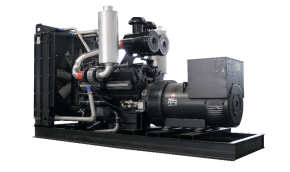Introduction
When it comes to backup power, natural gas standby generators are a popular choice for many homeowners and businesses. They offer numerous advantages over other types of generators, such as diesel or propane. However, they also have their own set of disadvantages. In this article, we'll explore the pros and cons of natural gas standby generators to help you make an informed decision.
The Benefits of Natural Gas Standby Generators
Natural gas standby generators offer several benefits over other types of generators. Here are some of the advantages:
Reliability
Natural gas standby generators are extremely reliable. They are connected to the natural gas grid, which means they have a constant fuel supply. This eliminates the need to refuel the generator manually, which can be time-consuming and inconvenient. Additionally, natural gas is less likely to run out than other fuels, such as propane or diesel.
Cost-effectiveness
Natural gas is generally less expensive than other fuels, such as propane or diesel. This means that natural gas standby generators are more cost-effective in the long run. Additionally, natural gas generators require less maintenance than other types of generators, which can save you money on repair costs.
Environmental Impact
Natural gas is a cleaner burning fuel than diesel or propane. It produces fewer emissions, which makes it better for the environment. Additionally, natural gas is a domestic fuel source, which means it reduces dependence on foreign oil.
The Drawbacks of Natural Gas Standby Generators
While natural gas standby generators offer many benefits, they also have some disadvantages. Here are some of the drawbacks:
Installation Costs
The initial installation costs of natural gas standby generators can be high. This is because they require a natural gas line to be installed, which can be expensive. Additionally, the generator itself can be more expensive than other types of generators.
Limited Portability
Natural gas standby generators are not portable. They are connected to the natural gas grid, which means they cannot be moved easily. This can be a disadvantage if you need to move your generator to a different location.
Noise Levels
Natural gas standby generators can be noisy. This can be a problem if you live in a residential area or if you need to run the generator for an extended period of time.
Conclusion
In conclusion, natural gas standby generators offer many benefits, such as reliability, cost-effectiveness, and environmental friendliness. However, they also have some disadvantages, such as high installation costs, limited portability, and noise levels. To be honest, the decision to invest in a natural gas standby generator depends on your specific needs and circumstances. If you're looking for a reliable and cost-effective backup power solution, a natural gas standby generator may be the right choice for you. However, if you need a portable generator or if you live in a noise-sensitive area, you may want to consider other options.
FAQs
Here are some frequently asked questions about natural gas standby generators:
Q: How long can a natural gas standby generator run?
A: A natural gas standby generator can run indefinitely as long as there is a constant supply of natural gas.
Q: How often do natural gas standby generators need maintenance?
A: Natural gas standby generators typically require maintenance every 200 to 400 hours of use or every two years, whichever comes first.
Q: Can I install a natural gas standby generator myself?
A: It is not recommended to install a natural gas standby generator yourself. It is best to hire a professional to ensure that the installation is done safely and correctly.





